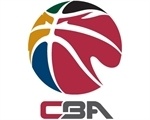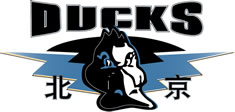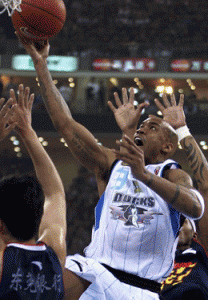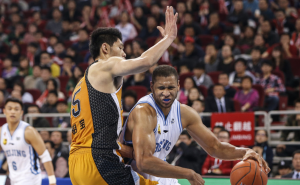 Half a world away from all the Phil Jackson madness, Stephon Marbury is competing for a championship … again.
Half a world away from all the Phil Jackson madness, Stephon Marbury is competing for a championship … again.
Game 1 of the Chinese Basketball Association (CBA) Finals is Wednesday night. The two best teams in the league — the Beijing Ducks and the Xinjiang Flying Tigers — will play a best-of-seven series for the CBA championship.
Beijing comes into the series having just upset the top dog of the league, the Guangdong Southern Tigers.
Xinjiang, on the other hand, is the undisputed heavyweight, hot off a semifinals sweep over Bobby Brown’s Dongguan Leopards. Xinjiang holds home court advantage for the Finals, but Beijing’s experience – it is making its second Finals appearance in three seasons – will be a critical factor.
Here’s an analysis of each team and how well they match up against each other, followed by a prediction for the CBA champion.
The returning champs — the Beijing Ducks
 Beijing is headed for its second CBA Finals appearance in three years. I wrote during the regular season that the Ducks are “fully loaded” and they’ve maintained that momentum into the playoffs.
Beijing is headed for its second CBA Finals appearance in three years. I wrote during the regular season that the Ducks are “fully loaded” and they’ve maintained that momentum into the playoffs.
The CBA features dynamic guard play; it’s the reason undersized American guards have been so dominant in this league. Quite simply, opposing teams just haven’t been able to contain Stephon Marbury, who averaged 33 points, 5.0 boards and 3.6 assists in the five-game semifinal against Guangdong. More impressively, he has done it on 36 percent shooting from 3 point range and 13.4 free throws a game. Think James Harden gets to the line a lot? The Beard’s got nothing on Starbury.
In most situations, Beijing has been effective running isolation plays for Marbury. So long as opponents aren’t double-teaming Marbury – and they haven’t been, due to Beijing’s availability of shooters – he is capable of  lining up his defender in his crosshairs to either knock down the mid-range J or get to the hole.
lining up his defender in his crosshairs to either knock down the mid-range J or get to the hole.
The elephant in the room is whether the 37-year-old Marbury can maintain his torrid pace. While Marbury has been giving it his all, he is clearly bothered by his knee, which must be drained after each game. After enduring a tough, physical series with Guangdong, it remains to be seen how much gas he has left in the tank. On the positive side, both teams have had a week’s time to recuperate.
Marbury’s backcourt mate, former NBA player Sun Yue, has been solid if unspectacular, averaging 11 points and 3 assists in the playoffs. Sun’s key contribution is that he is shooting 16-of-47 from 3-point range in the postseason. Beijing is going to need more of Sun’s veteran leadership and decision making, not to mention his steady shooting. Sun has been effective as the primary ballhandler, which allows Marbury to play off the ball.
At the forward spots, we have Chinese players Ji Zhe at small forward and Zhai Xiaochuan at power forward. There’s not too much to say about them, other than that they are serviceable big men. Neither of them shoot or rebound particularly well, but they have been part of the Beijing system for a number of years and commit few mistakes on the court.
 No Beijing analysis is complete without an examination and appreciation of center Randolph Morris. When they have stalled in their motion offense, the Ducks have dumped the ball inside to Morris, and he has been delivering. In the semifinals, Morris averaged 24.8 points, 10.2 rebounds, 1.8 assists and 0.8 blocks while playing 33 minutes.
No Beijing analysis is complete without an examination and appreciation of center Randolph Morris. When they have stalled in their motion offense, the Ducks have dumped the ball inside to Morris, and he has been delivering. In the semifinals, Morris averaged 24.8 points, 10.2 rebounds, 1.8 assists and 0.8 blocks while playing 33 minutes.
The numbers sound good until you realize that in the CBA, Morris is capable of doing much more. Unfortunately, he also has averaged 3.8 fouls while shooting a tepid 45.7 percent in the semifinals.
As one of the best players in the league, Morris is key to Beijing’s success. But he has struggled against lengthy defenders. It remains to be seen how well he can break out of a mediocre semifinals performance, especially against the likes of Xinjiang’s solid defense.
How good can the Chinese League be when incredibly bad players that couldn’t make it in the NBA are putting up astronomical numbers in the Chinese League. The Chinese League is a glorified rec league.